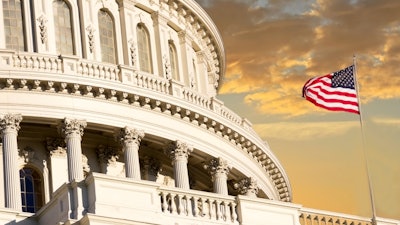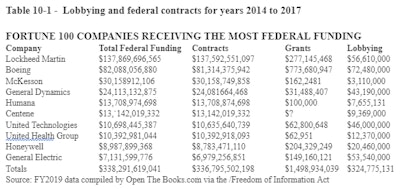
Editor's Note: The views expressed in this column are solely those of the author.
In the 1970s, businesses decided that if they were going to find ways to compete by seeking favorable changes in government policy, they had to buy access to Congress with lobbying money.
In 1972, leading CEOs formed the Business Roundtable, an organization devoted explicitly to cultivating political influence. Sector by sector, they began to build up a large fund to pay lobbyists to seek the crucial votes they needed. In 1975, only 175 corporations had lobbyists; by 2020, more than 12,000 lobbyists were dispensing more than $3 billion per year on lobbying efforts.
Before 1975, lobbyists were concerned with keeping the government out of their business, but this gradually changed to becoming partners with the government. The evolution of business lobbying is one of the most important transformations in business and politics since the Gilded Age.
Congressman Tom Delay arrogantly called the lobbying effort, "money for access," which was an apt description – exchanging money to buy votes from Congress. I will make the case that special interest groups have the money and the power to purchase congressional votes and that the return on their investment in lobbying is fantastic. According to Open Secrets, lobbyists spent $4.2 billion to influence federal lawmakers just last year.
Lobbyists provide expertise to Congress about complicated issues that few members have the time or expertise to study. Some companies do provide the government with mission-critical products, like military systems for defense. Lobbying is advantageous in that people take an active role in government. It is constitutionally protected, and it gives people the power to petition their government.
The disadvantage is that lobbying can also represent the narrow interests of the largest corporations, which leverage it to influence government policy for private gain that may hurt the U.S. economy. This practice is called "rent-seeking," which is the process of seeking income through government favors rather than through productive economic activity. The criticism is that rent-seeking incentivizes people to spend more time and money trying to get a bigger piece of the economic pie rather than trying to enlarge the pie. The benefits from rent-seeking can be profits, favorable government contracts, beneficial regulations, tariffs, tax preferences and subsidies.
It doesn't mean that no lobbying firms try to represent their employees, suppliers, industry and country. A good example is the Coalition for a Prosperous America. They represent domestic manufacturers, farmers, and ranchers working together to rebuild America. They value domestic employment, and national security over foreign production and cheap imports.
Examples of the disadvantages of lobbying
Pharmaceutical: Around 2000, the pharmaceutical industry developed the idea for Medicare Part D, the prescription drug benefit. But, besides the sales of more drugs, the legislation included a provision that forbade bulk purchasing by the government. In 2018, the U.S. spent an estimated $3.6 trillion, or 17.6% of gross domestic product, on healthcare, including $345 billion on prescription drugs. This was $520 per person spent in 1999 and $1,025 per person spent in 2017 on prescription drugs. So, the legislation forbidding bulk purchases was a big deal and doubled the cost of prescription drugs.
Financial: In October 2010, the Department of Labor (DOL) proposed a "fiduciary rule" to protect employee retirement accounts from brokers who charge exorbitant fees and put their commissions above earning returns for their clients. The idea was simple: If you're looking after someone's money, you should look out for their best interests. However, the proposed rule would cut into the financial industry's profits, so the industry used its lobbyists to overwhelm Congress with public comments. It worked, and on September 19, 2011, the DOL withdrew the proposed rule.
The Obama Department of Labor proposed the rule again on February 23, 2015. Again, the industry overwhelmed Congress with comments and it took so long that Donald Trump was elected president before the rule could be approved. Trump's Department of Justice refused to defend the rule in court and killed it again. Trump installed Eugene Scalia as director of the Labor Department, the lawyer and ex-lobbyist who brought the lawsuit that destroyed the labor proposal.
Energy: The Open Secret database shows how the oil and gas industry sowed doubt about climate change from 2005 to 2015. During these ten years, Exxon and other oil companies spent $5 billion to shape public policy and fight clean energy policies. At the same time, fossil fuel interests outspent renewable energy interests by more than 13 to 1.
According to the Yale Climate Connections, "The industry sowed doubt for decades about climate science, spending $2.9 billion on advocacy advertising alone in a 10-year period ending in 2015. It spent $1.3 billion more lobbying to shape public policy on energy issues during the same period and has pumped out $827.9 million in campaign contributions since 2000 to elect sympathetic officials at the local, state and federal levels."
Koch Industries, Exxon, and Chevron were the top three lobbying spenders, and except for Joe Manchin, the money went to 16 Republican Senators. This is incontrovertible proof that the oil, gas, and coal industries do not agree with the threat of climate change, or even if they do agree, they are committed to profit as more important than the threat of climate change.

Table 10-1 shows the ten companies that invested $324 million in lobbying and received $336 billion in contracts. One can argue that the contracts include many products and services needed by the government. However, one should ask why these ten large corporations receive grants of $1.5 billion. With a contract, the country might get a new fighter jet or the internet, but a grant is a taxpayer giveaway.
On August 19, 2018, 181 U.S. CEOs signed a commitment letter to lead their companies not just for the benefit of their investors but "for the benefit of all stakeholders: customers, employees, suppliers, communities, and shareholders." If the multinationals are really serious about leading their companies "for the benefit of all stakeholders," then lobbying is a target-rich environment to prove that they can walk their talk.
I see many opportunities to prove they are willing to help their employees, customers, communities, and the country. For instance, the fossil fuel industry can prove that they are concerned about the climate crisis by not spending millions of dollars trying to debunk it as an exaggeration. Or the pharmaceutical industry could support Medicare's efforts to buy medicine in bulk thus lowering drug prices for the Americans who can no longer afford their medicine. Or the hospitals, doctors, and medical associations who protect rising healthcare costs rather than looking for ways to lower them. Or the telecom giants who have been protecting their monopolies and charging customers twice the rate of the same services as European countries offer.
A Pew Research poll shows that "eight in ten U.S. adults say the people who donate money to political campaigns have too much influence on the decisions members of Congress make. And 73% say lobbyists and special interest groups have too much influence. Large majorities of Republicans and Democrats alike say campaign donors, lobbyists and special interest groups have too much influence."
There are obviously many advantages to lobbying, but the cons seem to far outweigh the pros. The biggest problem is that lobbying may be rent-seeking rather than supporting the long-term goals of the country, the economy, or the citizens. So, the question is: Can lobbying be changed to better balance corporate interests and the country's welfare?
Ironically, the representatives who have the power to change lobbying influence are the ones receiving money from lobbyists. This reminds me of an Upton Sinclair quote: "It is difficult to get a man to understand something, when his salary depends upon his not understanding it!"
Michael Collins is the author of a new book, "Dismantling the American Dream: How Multinational Corporations Undermine American Prosperity." He can be reached at mpcmgt.net.






















